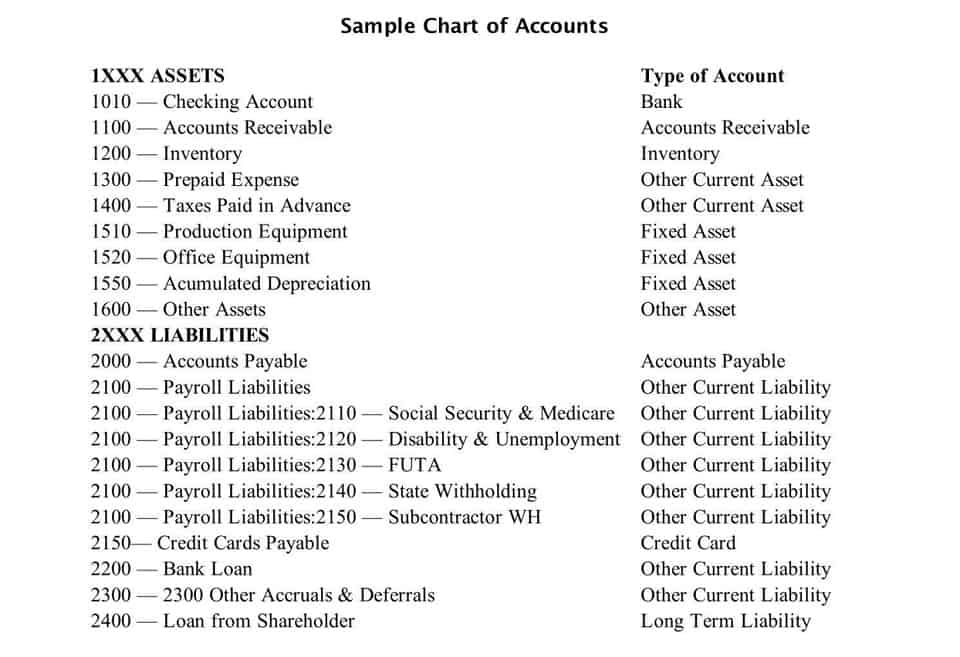
A CFO also provides advice on how to reduce costs and improve the bottom line. A comptroller is responsible for an organization’s overall financial management. This includes developing financial plans, overseeing investments, and managing bookkeeping tasks such as accounts payable. A comptroller also provides advice on how to reduce costs and improve revenue. A full- or part-time CFO brings a level of strategy, insight, and execution for which small or inexperienced financial teams may not be qualified. CFOs have a wide range of industry, operations, and corporate finance experience.
- But controllers usually work for for-profit businesses while comptrollers tend to work for non-profit groups and government entities, Accounting Tools says.
- However, this is not always the most strategic way to manage your company’s finances.
- Doing so will allow you to make better decisions, plan job duties more clearly, and strengthen your accounting and financial operations as a whole.
- A controller is a company executive that is responsible for all the organization’s accounting activities.
- If your company is preparing to raise capital, pursue a merger or acquisition, or planning for a strategic exit within the next 5 years, it’s time to hire an outsourced CFO.
A virtual CFO can replace at least one full-time employee with additional savings in the finance department of up to 30%. See our outsourced accounting pricing tiers to learn more about our base packages starting at $500 per month. In these days of economic challenges and changes, many companies struggle with uncertainty about the future, seeking tools and resources to best position their businesses for financial success. Cost analysis and price analysis are two important procedures that are used by businesses to calculate the true cost of a product or service and determine the best sales price.
When to Hire a Controller vs CFO?
Controllers are essential to companies because they help to accurately report historical performance, as well as leading audits. This is crucial for companies for developing budgets, projections, and future analysis. This is imperative to a company as it is the basis for strategic decisions–it would be detrimental to base business decisions on inaccurate data.
The CFO is the finance leader and chief financial strategist of a company. CFOs play a significant role in laying out the direction for a company’s future and advising stakeholders on important cfo vs controller business decisions. Chief Financial Officers identify business risks by looking at financial data and make appropriate decisions to mitigate those risks, among their many leadership functions.
A Complete Finance and Accounting Department through Outsourcing
While controllers focus on looking in the rear-view mirror to see what has happened through historical data. The differences between the two are more than just a matter of semantics. Your chief financial officer (CFO) is the senior executive that is responsible for managing the financial actions of your company.
Contact Signature Analytics today to find out how we can help you optimize your company’s financial future. An outsourced controller will have experience in a wider range of industries providing innovative solutions to old problems. In-house controllers may not see the forest for the tree, missing opportunities to cut costs or amend business practices that may not be optimal. If you don’t yet have a controller on staff, then this is the place to start. Hiring the right controller will be a great step forward to better understand your finances. The end of the fiscal year can be highly stressful for financial officers and corporate executives.
Origins Of Comptroller vs Controller
The median annual salary for chief executives was $189,600 as of May 2018. The bottom 10% in the profession earned around $68,360, and the top 10% more than $208,000 annually. CFOs’ salaries may be affected by their experience and education level, as well as their geographic location and the industry in which they work. Manufacturing and professional, scientific, and technical services paid their chief executives a median annual salary of more than $208,000. Healthcare and social assistance paid $174,000, and government paid $110,000. Indinero’s fractional CFO services can help your business grow smoothly.
Even a great CFO needs a good Controller on the team to do their job effectively. They provide financial guidance directly to the CEO and executive team, keeping them up-to-date on any financial issues that might have an impact on the business. In short, a controller will always know what’s what when it comes to the company’s finances.
Step Into the Controller vs. CFO Face-off
But we we do tend to see CFOs earlier and more often in some industries, such as tech companies with a lot of investor money at stake and where rapid growth is expected. So, as you might imagine, there are many small businesses which have a controller or a CFO, but not both. Your working capital ratio (also referred to as your current ratio) and cash conversion cycle are important measures of your company’s liquidity. Follow the above guidelines to know when the time is right to hire a CFO or if instead you should hire a controller.
- Nonetheless, small businesses — like all businesses — are still responsible for executing all of the core bookkeeping, accounting and financial functions essential to the enterprise.
- We’ll also provide advice on ways to reduce costs and improve revenue.
- Bureau of Labor Statistics tracks “financial managers,” not controllers, the median annual salary for these managers was just under $130,000 as of May 2019.
- Often, a bookkeeper and accountant can perform similar duties, depending on their level of expertise.
- The CFO is traditionally ranked just below the CEO in terms of hierarchy.
The controller’s oversight and account management enable the CFO to meet the company’s strategic goals. A good financial controller will develop efficient and effective strategies to increase profit margins, increase employee productivity, and find cost savings through cash management. Most small companies can’t afford a full-time controller, https://www.bookstime.com/ but as the business grows, you can’t afford to operate without a controller even if he or she functions on a part-time or consulting basis. Controllers, who are sometimes called comptroller’s, supervise bookkeepers, tax managers, credit managers, and other accounting staff while reporting to the CFO, CEO or business owner directly.
The focus of the controller is generally on more historical financials. Whether you need a CFO, controller or
accountant depends on which level of the pyramid you’re at (and whether you’re
in the midst of transitioning to the next level). If you believe there is a need for financial leadership in your organization, please contact us here.

Therefore, controllers typically earn higher salaries than their counterparts in the public sector. In this position, they often report to the company’s CFO, executives, and shareholders. A controller prepares financial reports like income statements and balance sheets. They also monitor internal controls, handle compliance audits, assist with budgeting and, to a certain degree, analyze financial information.
What is the Difference Between a Controller and a CFO?
Instead, they should be worried about the big picture — about ratios and trends and whether the company is meeting its obligations to banks, vendors, investors, and employees. Download our Executive Growth Reports now to see the kinds of reports a controller or CFO should deliver and keep them handy to compare with reports you receive from candidates. The easiest place to start in a controller vs. CFO comparison is to give you a description of each role. We also use different external services like Google Webfonts, Google Maps, and external Video providers. Since these providers may collect personal data like your IP address we allow you to block them here. Please be aware that this might heavily reduce the functionality and appearance of our site.